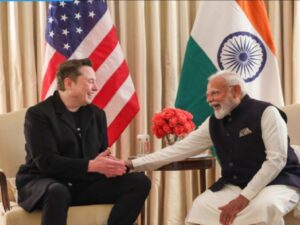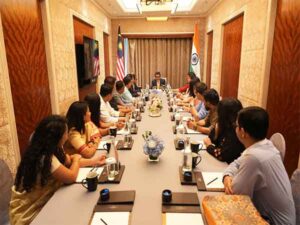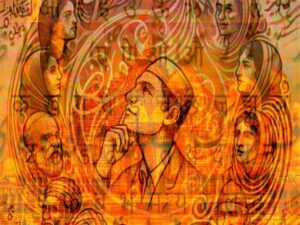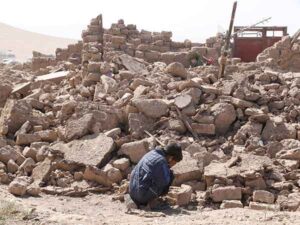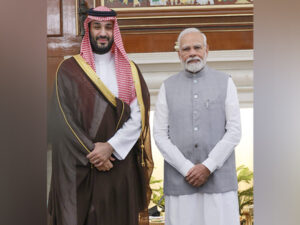UNESCO launches framework for enabling Intercultural dialogue in Arab region
Beirut [Lebanon], June 1 (ANI/WAM): The UNESCO Regional Office in Beirut hosted a conference for the Arab regional launch of the UNESCO Framework for enabling Intercultural Dialogue, in close collaboration with the Anna Lindh Foundation. Participants and experts discussed the state of Intercultural Dialogue in the Arab region and the ways to promote it using the UNESCO framework.
Recognising the potential for Intercultural Dialogue and the need for better data on Intercultural Dialogue to effectively tackle pressing global issues, UNESCO has developed the UNESCO Framework for Enabling Intercultural Dialogue in partnership with the Institute for Economics and Peace.
Including data from over 160 countries, the Framework serves as a guide on how best to improve the structures, values and processes that enable Intercultural Dialogue, knowing that Intercultural Dialogue can be defined as a process undertaken to realise transformative communication that requires space or opportunities for engagement and a diverse group of participants committed to values such as mutual respect, empathy and a willingness to consider different perspectives.
An important tool for peace, conflict prevention, fragility reduction, and human rights promotion, a knowledge gap on what makes dialogue effective has hindered our ability to use this tool until now.
Speaking at the opening of the conference, Princess Rym Ali, President of the Anna Lindh Foundation, said, “Diversity is a fact, but inclusion is a choice. In our collaboration with UNESCO, we strive to foster intercultural understanding among Euro-Med youth. Together, let’s uphold the shared values of diversity, inclusion, and equality, as we embark on this transformative journey.”
Gabriela Ramos, UNESCO Assistant Director-General for Social and Human Sciences, said, “The Arab States ren is rich in cultural heritage that reflects a wealth of diversity. From the Maghreb to the Arabic peninsula, the region holds one of the most ancient civilisations and is home to 450 million people. Despite this richness, the region is home to many of today’s global challenges.
Our data show a relationship between conflict and lack of dialogue. 99 per cent of conflicts in the region occur in countries where dialogue is stalling. With the rising cost of living, the region has the world’s highest youth unemployment, reaching 27 per cent and women’s unemployment is at 23 per cent, three times higher than the world average.
Our new data indicate that 10 per cent of people in countries in the region where dialogue is stalling life in extreme poverty, and gender equality remains a persistent challenge. Investing in Intercultural Dialogue is therefore a vital step towards building the trust and collective will to build a better future for all. This is why UNESCO has developed the Framework for Enabling Intercultural Dialogue and accompanying global report.”
“For the first time, we have the knowledge to inform better policies. We now can prioritise and sequence investments to enhance dialogue for transformative impact. Today, we have the opportunity to take a significant step towards our goal, here in the Arab States, by using this initiative as a means to evaluate opportunities in the region for fostering intercultural dialogue and finding concrete ways to implement and contextualise this framework locally.”
Costanza Farina, Director of the UNESCO Regional Office, said, “The Framework offers data sets and rich analysis of key macro- and micro-level societal factors that create the space and opportunity for successful Intercultural Dialogue. According to its findings, the Arab region performs at different levels in Social Cohesion and Skills and Values. Inclusion and Global Citizenship Education and Freedom of Expression are the areas which require more attention and hence actions.”
“In these consultations over the next two days, we will share and use data and findings from the framework to deepen your collective analysis of gaps, challenges, and opportunities in the Arab region. The key outcome of our consultations will be a roadmap that identifies priorities and actionable recommendations for the systemic use and operationalisation of the Framework. The roadmap will enable the scaling up of a more sustainable intercultural dialogue in the Arab region.”
The Framework includes 9 domains consisting of 21 indicators. The first of its kind, the Framework provides stakeholders with an understanding of the environment behind intercultural dialogue and how to enable intercultural dialogue within their specific context.
The Framework also shows for the first time the direct connection between peacefulness, conflict prevention and non-fragility, and human right protection with intercultural dialogue creating an additional incentive for countries to foster this important tool.

